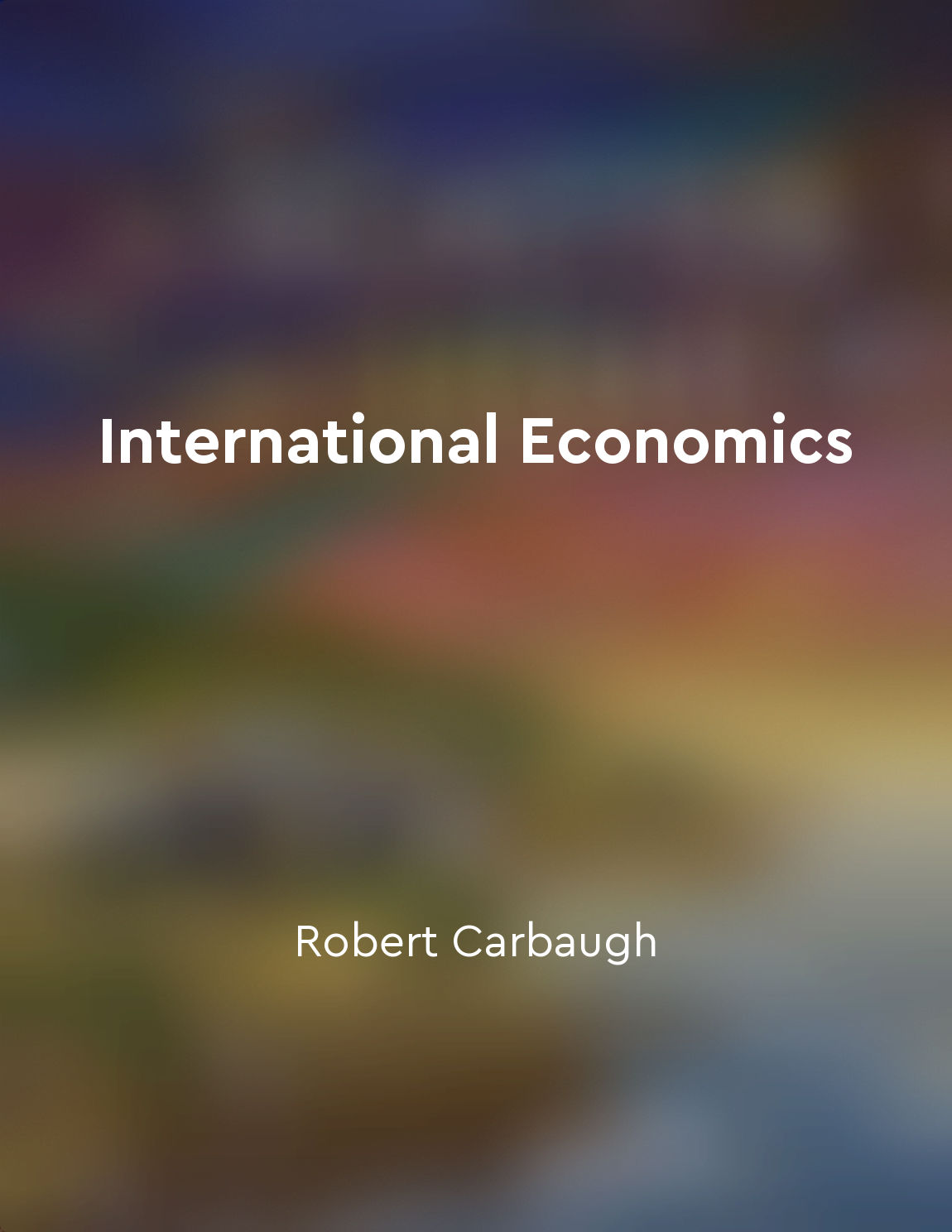Audio available in app
Financial crises can disrupt global trade from "summary" of International Economics by Robert Carbaugh
Financial crises have the potential to severely disrupt global trade. When a financial crisis hits a country, it can lead to a sharp decline in economic activity, including both domestic consumption and international trade. This decline in economic activity can have a ripple effect across the globe, affecting trading partners and countries that rely on the affected country for imports or exports. One way in which financial crises can disrupt global trade is through a decrease in demand for goods and services. When a country is hit by a financial crisis, its consumers may cut back on their spending, leading to a decrease in demand for imported goods. This can have a negative impact on exporting countries that rely on the affected country as a market for their goods. Furthermore, financial crises can lead to a tightening of credit conditions, making it more difficult for businesses to access financing for trade. This can result in a decrease in the volume of trade as businesses struggle to secure the necessary funding to conduct international transactions. Additionally, uncertainty and volatility in financial markets can make businesses hesitant to engage in trade, further dampening global trade activity. Moreover, financial crises can also disrupt global supply chains. As countries are interconnected through complex supply chains, a disruption in one country can have far-reaching effects on global trade. For example, if a country that is a key supplier of a certain component experiences a financial crisis, it can lead to shortages and disruptions in production for businesses around the world that rely on that component.- Financial crises have the potential to significantly disrupt global trade through various channels such as decreased demand, tightening credit conditions, increased uncertainty, and disruptions in supply chains. It is important for policymakers to be aware of the interconnectedness of the global economy and to take measures to mitigate the impact of financial crises on international trade.


